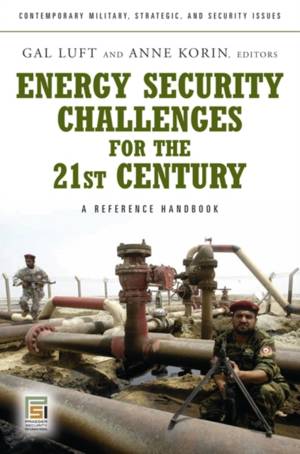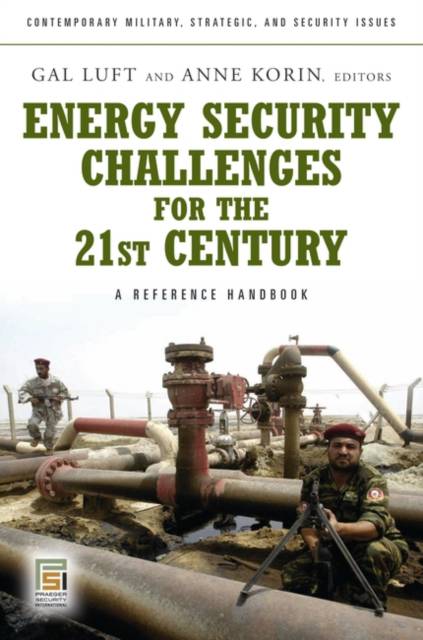
- Afhalen na 1 uur in een winkel met voorraad
- Gratis thuislevering in België vanaf € 30
- Ruim aanbod met 7 miljoen producten
- Afhalen na 1 uur in een winkel met voorraad
- Gratis thuislevering in België vanaf € 30
- Ruim aanbod met 7 miljoen producten
Zoeken
Energy Security Challenges for the 21st Century
A Reference Handbook
€ 123,95
+ 247 punten
Omschrijving
The impact of energy on global security and economy is clear and profound, and this is why in recent years energy security has become a source of concern to most countries. However, energy security means different things to different countries based on their geographic location, their endowment of resources their strategic and economic conditions. In this book, Gal Luft and Anne Korin with the help of twenty leading experts provide an overview of the world's energy system and its vulnerabilities that underlay growing concern over energy security. It hosts a debate about the feasibility of resource conflicts and covers issues such as the threat of terrorism to the global energy system, maritime security, the role of multinationals and non-state actors in energy security, the pathways to energy security through diversification of sources and the development of alternative energy sources. It delves into the various approaches selected producers, consumers and transit states have toward energy security and examines the domestic and foreign policy tradeoffs required to ensure safe and affordable energy supply. The explains the various pathways to energy security and the tradeoffs among them and demonstrates how all these factors can be integrated in a larger foreign and domestic policy framework. It also explores the future of nuclear power, the complex relations between energy security and environmental concerns and the role for decentralized energy as a way to enhance energy security.
Specificaties
Betrokkenen
- Uitgeverij:
Inhoud
- Aantal bladzijden:
- 388
- Taal:
- Engels
- Reeks:
Eigenschappen
- Productcode (EAN):
- 9780275999971
- Verschijningsdatum:
- 1/08/2009
- Uitvoering:
- Hardcover
- Formaat:
- Ongenaaid / garenloos gebonden
- Afmetingen:
- 157 mm x 241 mm
- Gewicht:
- 734 g

Alleen bij Standaard Boekhandel
+ 247 punten op je klantenkaart van Standaard Boekhandel
Beoordelingen
We publiceren alleen reviews die voldoen aan de voorwaarden voor reviews. Bekijk onze voorwaarden voor reviews.







